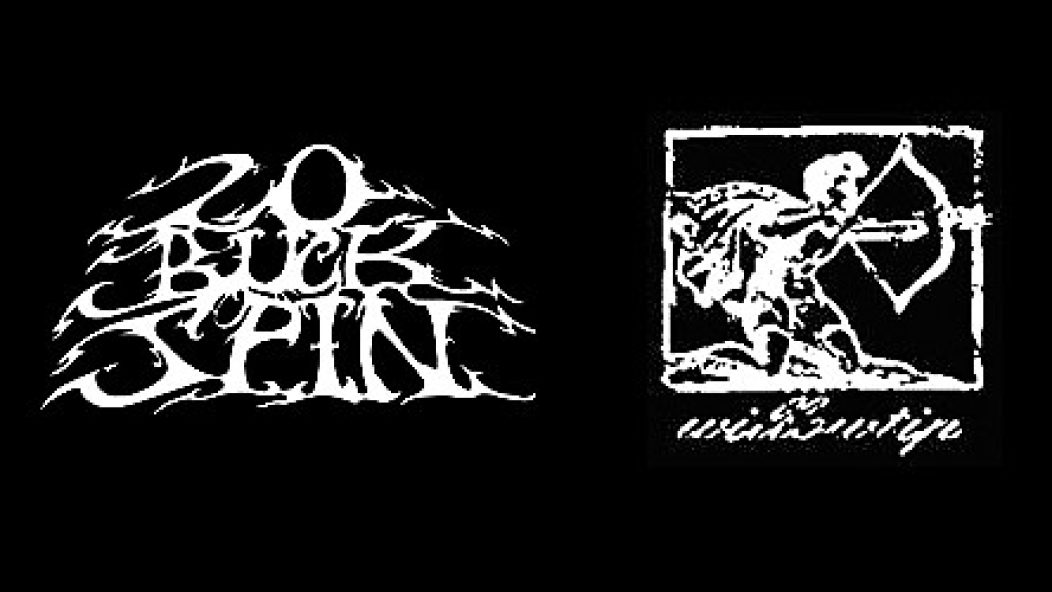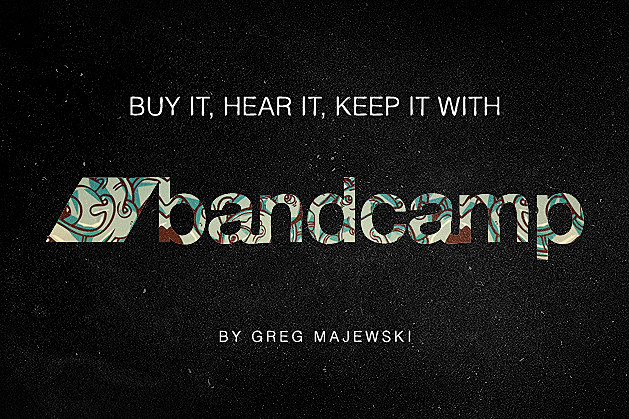
Buy It, Hear It, Keep It With Bandcamp
. . .
Now that international taskforces are busting down doors in New Zealand and sentencing website owners to 50 years in prison without the need for bullshit legislation, we should all be grateful that we no longer need to traffic in underground blogs — seedy, cobwebbed corners of the web — to acquire digital music.
Since 2008, Bandcamp has been changing how we search for, listen to, and ultimately purchase music online. I mean, iTunes is good in many ways, but with Bandcamp, you don’t have to sign up or create an account to buy (and hand over all your personal data in the process). You get to sample full tracks before you buy them. You can often buy physical products alongside the music. While the streaming quality is only 128kbps, Bandcamp requires that bands upload high-fidelity files, so in many cases audiophiles have a choice of WAV, AIFF, or FLAC lossless formats. Much more of the money goes to the artist. And there’s a personal feel you don’t get from iTunes or pirating: buy a demo from an underground band on Bandcamp, and you just may get a personal ‘thank you’ email.
On Bandcamp, bands pay a nominal fee to the site in order to upload their songs or albums, the site takes care of the all the tagging for transfer to iTunes or any other application, and music that once needed the financial muscle of a major label to reach an audience can now be accessed by anyone, anywhere. Of course, the actual business side of this transaction is more complicated than that, but not as complicated as you’d think. The money is transferred directly to the artist’s PayPal account, with Bandcamp tracking the revenue and taking an agreed-upon percentage after a certain amount of sales are met. The bottom line is that even the tiniest upstart band can post their art for all to enjoy, and if they want to make some money from their hard work, they can do so without selling their soul or signing their names in blood.
CDs are fighting a rearguard action thanks to the rise of MP3, FLAC, and AAC. I sold nearly all of the couple hundred little plastic discs I owned to the House of Records in Eugene, Oregon, three years ago, saving just a few with sentimental value (including my copy of Panopticon signed by Aaron Turner in Morse code). Some would do this to save space; I needed the capital to buy a used turntable, an Onkyo TX-6500, and some truly terrible speakers. I went from a shelf stocked with rows of thin jewel cases to a cardboard box of vinyl, and a closet with a receiver so heavy it threatened to fall through the floor and crush my landlord in her sleep.
Having fully committed to wax as my go-to physical format, what if I wanted to enjoy the sweet crusty sounds of PDX heroes Tragedy on the way to class? I couldn’t very well lug my cheapo Dual TT with me wherever I went. So I sought out torrent sites and scoured blogs to feed my iPod’s seemingly limitless appetite, without paying a cent. I wanted to acquire stuff legitimately, and I wanted to make sure the bands I listened to saw real money for the intangible bits and bytes streaming into my laptop. But before Bandcamp, that wasn’t easy. Vinyl is my preferred physical format, not just as a collectible, high fidelity investment; purchasing it brings you closer to label and artist. And as convenient as it may be, buying and downloading music from iTunes doesn’t fulfill that requirement. You’re essentially paying Apple for their permission to access music that isn’t even theirs. But how else could an industry-supporting, vinyl-owning music lover acquire easily portable files to drown out the sounds of obnoxious coworkers, or that dude blasting Drake’s latest Auto-Tuned mess on his Droid?
Industry journalists were skeptical when Radiohead announced they would release In Rainbows for online download months before its CD release, and then the British alt rockers delivered the punchline: anyone could pay any amount of sterling, dollars, whatever, for the album. If you thought it was worth the full price, you could fork over 18 bucks for a 160kbps copy. Those strapped for cash could post a dollar, or just nab the thing for free (plus admin costs). It was a brave move, and a successful campaign for promoting the web as a means to acquire music legitimately. For a multi-platinum band like Radiohead, though, it wasn’t particularly risky. Fans were going to buy the album anyway, whether online or in a brick and mortar store when the CD and vinyl editions finally hit the shelves. It all worked out for Mr. Yorke and co., but what about the bands who couldn’t afford to launch their own website devoted entirely to distributing their music? What about the indie bands, the unsigned bands? And, for the purposes of this site, what about the metal bands?
Which brings us to the cloven-hoofed trampling Bandcamp has recently endured by acts across the metal spectrum. Hip indie labels like 20 Buck Spin and Profound Lore are predictable adopters, but even heavies like Relapse have recognized this new format as a sustainable means to sell high-quality digital versions of current and out-of-print releases. Most importantly, potential consumers can hear everything before they add a single track to their shopping cart. You can stream an album endlessly if you feel so inclined, but chances are if you really dig what you’re hearing, you’re probably going to buy the thing eventually. Want to check out some obscure Agalloch B-sides? No problem. Can’t find those old Today is the Day albums in stores? Yep, they’re here. Not sure how Woe’s recent remix of 2010’s excellent Quietly, Undramatically compares to the original? (It’s far superior, by the way.) You can check out all of those, along with a steadily growing number of some of the harshest sounds around, just by clicking “play” without having to click “buy” until you’re sure it’s something that will properly make women weep and men gnash their teeth. There’s even an entire blog dedicated to posting daily updates on new additions.
In addition to the convenience of instant acquisition, there’s some perverse gratification in seeing a clean, professional platform defiled by filthy black metal, screwy tech death, and ear-lacerating power electronics. The first time you see Proclamation’s goat skull/blood-red logo or the torturous, totally NSFW cover for Defeated Sanity’s Chapters of Repugnance splayed over that austere grey background, you’ll know what I mean. And when those unholy sounds stream through your speakers in crisp 128kbps, you’ll be a believer, too.
Whether they’re aware of it or not, Bandcamp is supporting underground metal as much as any musty boutique or obscure cassette imprint. It’s the single best tool a young, unsigned band has available to them right now. And it’s an excellent distribution service for fans who enjoy the analogue format, but who also want to own digital media legitimately. It still sort of makes me feel like a pirate, just a slightly more refined one.
. . .











